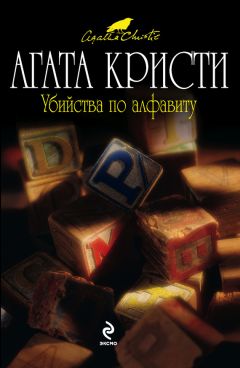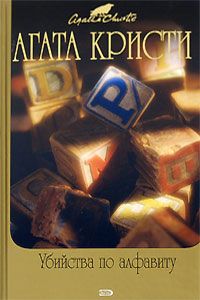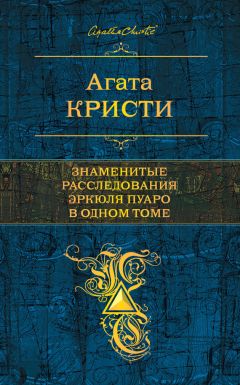Agatha Christie - Английский язык с Агатой Кристи. Убийства по алфавиту
"You were not in the least at pains to choose a victim (вы не прилагали ни малейших усилий, чтобы выбрать жертву; to be at pains — очень стараться, прилагать усилия; pains — муки; усилия) whose name began with D (чье имя начиналось с /буквы/ «ди»). Anyone would do (любой подошел бы)! You assumed (вы допустили) — and quite rightly (и совершенно правильно) — that it would be considered to be a mistake (что это посчитают за ошибку). There was sure to be someone (там наверняка был кто-то) whose name began with D not far off in the audience (недалеко среди публики, чье имя начиналось с /буквы/ «ди»). It would be assumed (допустят) that he had been intended to be the victim (что он предназначался в жертвы)."
"And now, my friends (а теперь, друзья мои), let us consider the matter from the point of view of the false A.B.C. (давайте рассмотрим это дело с точки зрения фальшивого Эй-би-си) — from the point of view of Mr. Cust (с точки зрения мистера Каста)."
pains [peɪnz], intend [ɪnˈtend], point [pɔɪnt]
"You were not in the least at pains to choose a victim whose name began with D. Anyone would do! You assumed — and quite rightly — that it would be considered to be a mistake. There was sure to be someone whose name began with D not far off in the audience. It would be assumed that he had been intended to be the victim."
"And now, my friends, let us consider the matter from the point of view of the false A.B.C. — from the point of view of Mr. Cust."
"The Andover crime means nothing to him (эндоверское преступление ничего не значило для него). He is shocked and surprised by the Bexhill crime (он был шокирован и удивлен бексхиллским преступлением) — why, he himself was there about the time (как же так, он сам был там в это время)! Then comes the Churston crime (затем происходит черстонское преступление) and the headlines in the newspapers (и /появляются/ заголовки в газетах)."
"An A.B.C. crime at Andover (преступление Эй-би-си в Эндовере) when he was there (когда он там был), an A.B.C. crime at Bexhill (преступление Эй-би-си в Бексхилле), and now another close by (и теперь еще /одно/ рядом) … Three crimes (три преступления) and he has been at the scene of each of them (и он был на месте каждого из них). Persons suffering from epilepsy often have blanks (люди, страдающие эпилепсией, часто имеют провалы /в памяти/) when they cannot remember (когда они не могут вспомнить) what they have done (что они делали) … Remember (помните) that Cust was a nervous (что Каст был нервный), highly neurotic subject (высоко невротичный субъект) and extremely suggestible (и крайне внушаемый)."
"Then he receives the order to go to Doncaster (затем он получает приказ ехать в Донкастер)."
nervous [ˈnǝ:vǝs], highly [ˈhaɪlɪ], neurotic [njʋǝˈrɔtɪk]
"The Andover crime means nothing to him. He is shocked and surprised by the Bexhill crime — why, he himself was there about the time! Then comes the Churston crime and the headlines in the newspapers."
"An A.B.C. crime at Andover when he was there, an A.B.C. crime at Bexhill, and now another close by … Three crimes and he has been at the scene of each of them. Persons suffering from epilepsy often have blanks when they cannot remember what they have done … Remember that Cust was a nervous, highly neurotic subject and extremely suggestible."
"Then he receives the order to go to Doncaster."
"Doncaster! And the next A.B.C. crime is to be in Doncaster (а следующее преступление Эй-би-си должно быть в Донкастере). He must have felt (он, должно быть, чувствовал) as though it was fate (словно это была судьба). He loses his nerve (он теряет самообладание), fancies (воображает) his landlady is looking at him suspiciously (что его домовладелица смотрит на него подозрительно = с подозрением), and tells her (и говорит ей) he is going to Cheltenham (что он едет в Челтнем)."
"He goes to Doncaster (он едет в Донкастер) because it is his duty (потому что это его обязанность). In the afternoon he goes to a cinema (днем он идет в кино). Possibly (возможно) he dozes off for a minute or two (он дремлет там минуту или две)."
"Imagine his feelings (представьте себе его чувства) when on his return to his inn he discovers (когда по возвращении в свою гостиницу он обнаруживает) that there is blood on his coat sleeve (что на его рукаве пальто — кровь) and a bloodstained knife in his pocket (и нож с пятнами крови в его кармане). All his vague forebodings leap into certainty (все его смутные подозрения резко меняются на определенные: «прыгают = делают скачок в определенность»)."
duty [ˈdju:tɪ], doze [dǝʋz], foreboding [fɔ:ˈbǝʋdɪŋ]
"Doncaster! And the next A.B.C. crime is to be in Doncaster. He must have felt as though it was fate. He loses his nerve, fancies his landlady is looking at him suspiciously, and tells her he is going to Cheltenham."
"He goes to Doncaster because it is his duty. In the afternoon he goes to a cinema. Possibly he dozes off for a minute or two."
"Imagine his feelings when on his return to his inn he discovers that there is blood on his coat sleeve and a bloodstained knife in his pocket. All his vague forebodings leap into certainty."
"He — he himself (он сам) — is the killer (/и/ есть убийца). He remembers his headaches (он вспоминает свои головные боли) — his lapses of memory (свои провалы памяти). He is quite sure of the truth (он совершенно уверен в правде) — he, Alexander Bonaparte Cust, is a homicidal lunatic (помешанный убийца)."
"His conduct after that is the conduct of a hunted animal (его поведение после этого — это поведение преследуемого животного). He gets back to his lodgings in London (он добирается до своего жилища в Лондоне). He is safe there (он в безопасности там) — known (его /там/ знают). They think (они думают) he has been in Cheltenham (что он был в Челтнеме). He has the knife with him still (у него все еще с собой нож) — a thoroughly stupid thing to do (совершенно глупо так делать), of course (конечно). He hides it behind the hall stand (он трячет его за вешалкой в холле)."
"Then (затем), one day (однажды), he is warned (его предупреждают) that the police are coming (что идет полиция). It is the end (это конец)! They know (они знают)."
"The hunted animal does his last run (преследуемое животное совершает свой последний забег) …"
conduct [ˈkɔndǝkt], safe [seɪf], run [ˈænɪmǝl]
"He — he himself — is the killer. He remembers his headaches — his lapses of memory. He is quite sure of the truth — he, Alexander Bonaparte Cust, is a homicidal lunatic."
"His conduct after that is the conduct of a hunted animal. He gets back to his lodgings in London. He is safe there — known. They think he has been in Cheltenham. He has the knife with him still — a thoroughly stupid thing to do, of course. He hides it behind the hall stand."
"Then, one day, he is warned that the police are coming. It is the end! They know."
"The hunted animal does his last run …"
"I do not know (я не знаю) why he went to Andover (почему он поехал в Эндовер) — a morbid desire (нездоровое желание), I think (я думаю), to go and look at the place (поехать и посмотреть на место) where the crime was committed (где было совершено преступление) — the crime he committed (преступление, которое он совершил) though he can remember nothing about it (хотя он ничего не может вспомнить об этом) …"
"He has no money left (у него не осталось денег) — he is worn out (он измучен; to wear — носить /одежду/; изнашивать) … his feet lead him of his own accord to the police station (его ноги привели его по его собственной воле в полицейский участок)."




